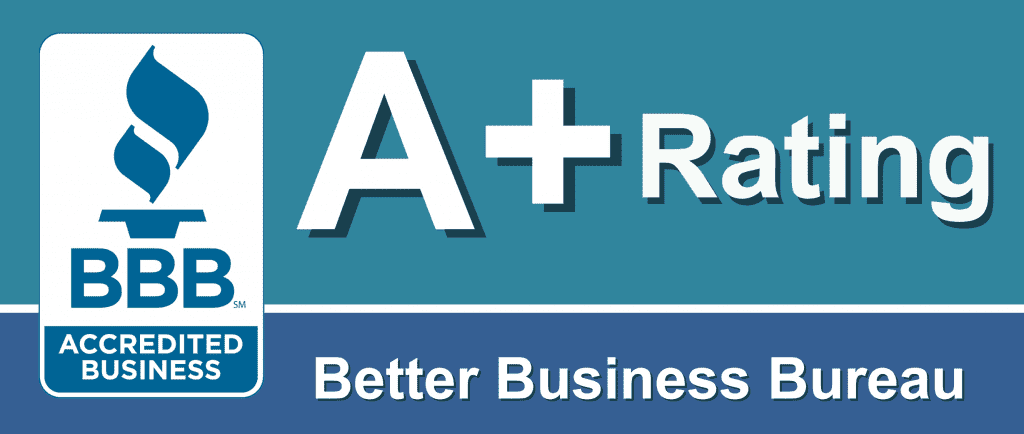As we head into January 2020 mortgage rates are near their 2019 lows and significantly lower than this time last year. To see the trend of low mortgage rates continue (or possibly lower) we are going to have to have a stable Mortgage-Backed Securities market (MBS).
The simplest way to explain the Mortgage-Backed Securities market is this; the MBS market is where mortgage rates originate. It’s a bond market where groups of mortgages are traded between investors. The Fed does not set mortgage rates, neither does the 10y Treasury; they only have an influence over the MBS market.
2019 was a great year for consumer mortgage rates and we are anticipating mortgage rates will remain stable as we move further into January.
Below are our Conforming/Conventional, FHA, and Jumbo fixed mortgage rates at various term lengths. If you would like a quote specific to your transaction please be sure to contact us (you can use the contact form below or call me directly at 1-800-550-5538). With each and every client we offer low rates, fast closings, and one on one personal service.
Stability Is Important
It’s better for consumer mortgage rates if the MBS market is stable because it allows mortgage lenders and licensed Loan Officers to better anticipate what the market will look like when your actual loan closes. When MBS prices are all over the place mortgage lenders tend to be a bit conservative with the mortgage rates they are issuing.
The risks to consumer mortgage rates remain the same as last month;
- China trade deal improvements
- Brexit moving closer to being resolved
- Improving economic data
These three areas remain the biggest risk to a stable MBS market. As always the number concern for mortgage rates is the economy. If the economic data is stronger than expected that would be a negative for mortgage rates. If the economic data comes in weaker than expected that could be a positive for mortgage rates.
California Mortgage Calculator
Using a mortgage calculator to figure out your monthly mortgage payment is an essential part of buying a home in California or refinancing a current mortgage. Use our free mortgage calculator to help you determine what you can afford and if you have questions please don’t hesitate to ask!
Economic Calendar For January
Here we cover the daily economic events that might impact mortgage rates. After the report comes out we’ll update the post with that information and comment on if there is a potential impact on the Mortgage-Backed Securities market and consumer mortgage rates.
Wednesday – January 29th:
- Mortgage Market Index: The weekly report came in higher than last week at 649.8. There was an increase in both purchase and refinance applications.
- Fed Meeting: Later today we’ll hear from the Fed and we’ll update our reader’s post-release. No one is expecting the Fed to cut rates as they have previously made it clear that they are in a wait-and-see period.
Tuesday – January 28th:
- Durable Goods – December: Durable Goods rose 2.4% (vs a 0.4% expectation) which is a noticeable improvement from last month’s decline of -2.4%.
- Consumer Confidence: A solid reading for the Consumer Confidence report; 131.6 vs last month’s reading of 126.5. Not sure the reason for the boost but it may have to do with the signing of the Phase One trade deal with China.
Friday – January 24th:
- Markit PMI Composite: Today’s report came in at 53.1 which is higher than the 52.7 from the previous month.
Wednesday – January 22nd:
- Mortgage Market Index: Last week the index came in at 613.6 and today it came in at 606.2 as both the Refinance and Purchase application indexes declined. Nationwide the average 30-year fixed-rate (with points) is 3.87%. FYI – we’re offering 30 year fixed rates below this.
- Existing Home Sales: The report showed an increase of 3.6% after last months decline of 1.7%
Friday – January 17th:
- Consumer Sentiment: Expectations were for a reading of 99.3 however the report came in just below that (99.1)
- Housing Starts: The report showed an increase to 1,608,000 (annual rate). That is a huge jump up however it’s not expected to continue into February.
Thursday – January 16th:
- Retail Sales: Last month the report came in at a 0.2% increase and the expectations for this report are a 0.3% increase. The report came in exactly as expected (0.3% increase).
- Philly Fed Index: Last month’s 0.3 reading was a big disappointment for the economy; will the Philly Fed disappoint again? The market is expecting a reading of 3.8. The report came in much higher than expected; 17.0
- Import and Export Prices: Import Prices are expected to show a 0.3% gain and Export Prices are expected to show a 0.2% gain. Import prices came in as expected but export prices came in below expectations (-0.2%).
Wednesday – January 15th:
- Core Producer Prices: The annual report came in a bit lower at 1.1% (vs 1.3%) and the monthly came in lower as well (01.% vs 0.2%). Overall a good report for mortgage rates. It won’t move them lower but it will help them to remain stable.
- Mortgage Market Index: A huge jump in the index; last week’s report came in at 471.3 and this week it was 673.6. The main reason? The Refinance index moved from 1,731.7 last week to 2,444.7 this week and the Purchase index moved from 263.2 to 303.9.
Tuesday – January 14th:
- Core CPI-December: The market was expecting the annual CPI number to come in at 2.3% and that’s what the report delivered. The monthly report came in below expectations at 0.2% (the market was expecting a 0.3% increase). There was limited reaction to the bond market immediately after the report however thirty minutes post report the 10y year moved to 1.82% (opened the day above 1.84%).
Friday – January 10th:
- Wholesale Inventories and Sales: The market is anticipating a 0.2 increase for inventories and no increase in sales.
- BLS Employment report for December: Another big and important economic report. Last month’s BLS Employment report showed the number of jobs created (non-farm) was 266,000 and the expectations for the December report are 165,000. Last month’s report was the exact opposite of the ADP report (it was much higher). Wages are expected to increase 0.2% and the unemployment rate is expected to come in at 3.50%. The report came in below expectations; 1450,000 jobs created and wages only increase by 0.1%. The unemployment rate did come in as anticipated (3.50%).
Wednesday – January 8th:
- Weekly Mortgage Market Index: Last week the index came in at 478.7 and the average 30-year fixed mortgage rate was 3.99%. The report decreased slightly to 471.3. The purchase component came in at 263.2 and the refinance component came in at 1713.7. This report will have a limited impact on January 2020 mortgage rates.
- ADP National Employment Report for December: Last month’s ADP report came in at 67,000 jobs created (way below expectations) and this month the market is anticipating a report showing 150,000 jobs created. The report was much higher than expected; 202,000 jobs created. Post report the bond market sold off and the 10y yield pushed above 1.83%
Tuesday – January 7th:
- ISM Non-Manufacturing PMI: As with the Friday report; this also tends to have an impact on the markets and consumer mortgage rates. Expectations are for a reading of 54.5 after last month’s reading of 53.9. The report came in at 55.0.
Friday – January 3rd:
- ISM Manufacturing PMI: The ISM Manufacturing report tends to have some sort of impact on MBS and consumer mortgage rates. Last month the report came in at 48.1 and expectations are for a reading of 49.1 The actual report came in at 47.2 and could end up having an impact on January 2020 mortgage rates.
Thursday – January 2nd:
- Weekly Jobless Claims: Last week the report came in at 222,000 and this week it was the same (222,000 claims).

January 2020 Mortgage Rates And The Economy:
January is going to be a big month for economic reports and the direction markets and consumer mortgage rates will go in. If the data in January suggest an economic turnaround is building then we can probably expect mortgage rates to move higher as bond markets would most likely sell-off.
We were surprised to see the muted reaction to the announcement last month of the Phase One trade deal the US and China agreed on. Many industry sources were expecting a big selloff in the bond market and a jump in mortgage rates post-trade agreement. There was a market selloff but it was only minimal and didn’t last very long so for the most part mortgage rates remained near their recent range. Loan applications for refinance and purchase transactions remained at typical levels seen during that time of year.
A New Added Risk For Markets
On January 2nd, 2020 the United States killed Iranian military leader Qasem Soleimani. Many foreign policy experts believe this is a dangerous escalation of tensions between the two countries. Some have said that it’s going to viewed as a declaration of war since Soleimani was a government official (in fact it’s been reported that he is the number two person in terms of power; similar to a Vice President).
At this point, it is too early to say how this potential war might impact Mortgage-Backed Securities and consumer mortgage rates. While it’s true that in times of crisis bonds tend to rally it doesn’t necessarily mean we’ll see significant moves in mortgage rates. The reason is simple; at some point in the near future, the market expects the crisis to end so any gains in the bond market from the crisis will be reversed.
There is also the issue of oil for January 2020 mortgage rates.
If there is some sort of super spike in the price of oil that could turn out to be a negative for bonds and consumer mortgage rates. Why? A significant increase in oil will put pressure on inflation and investors know that. And bonds hate inflation so it’s something to keep an eye on as we move forward; especially if tensions continue to escalate.
Mortgage-Backed Securities & Treasury Snapshot
January 20th – 24th:
Mortgage-Backed Security FNMA 3.0 started the week around the 101.73 level and the FNMA 3.5 coupon started the new year around the 102.97 level. The 10y Treasury yield was at the 1.79% level to start the week.
FNMA 3.0 ended the week at 101.95 level, the FNMA 3.5 coupon ended the week at the 103.02 level and the 10y treasury yield ended the week around the 1.68% level.
January 12th – 17th:
Mortgage-Backed Security FNMA 3.0 started the week around the 101.63 level and the FNMA 3.5 coupon started the new year around the 102.99 level. At the open on Monday the 12th the 10y Treasury yield was at the 1.84% level. FNMA 3.0 ended the week at 101.58 level, the FNMA 3.5 coupon ended the week at the 102.94 level and the 10y treasury yield ended the week around the 1.84% level.
January 6th – 10th:
Mortgage-Backed Security FNMA 3.0 started the week around the 101.75 level and the FNMA 3.5 coupon started the new year around the 102.98 level. At the open on Monday the 6th the 10y Treasury yield was at the 1.78% level. There were no major economic reports to start the week but on Tuesday we have the ISM Non-Manufacturing report.
The 10y yield finished the week under 1.85% (earlier in the week it pushed above the 1.89% level). The FNMA 3.0 was around 101.78 and the FNMA 3.5 was around 102.97.
January 2nd and 3rd:
Mortgage-Backed Security FNMA 3.0 started the new year around the 101.41 level and the FNMA 3.5 coupon started the new year around the 102.86 level. At the open the 10y Treasury yield was just above 1.91% however it quickly moved just below 1.90%. At the open, on Friday the 10y yield moved significantly lower (to the 1.81% level) after reports the United States killed Iranian military leader Qasem Soleimani.










